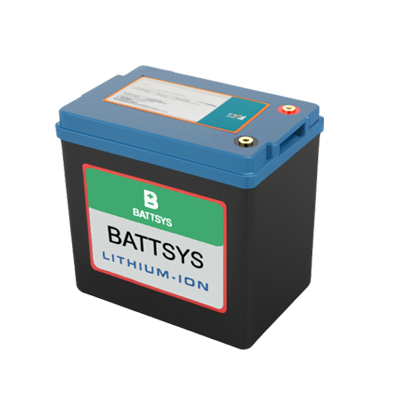Is it better to choose lead-acid batteries or lithium batteries for golf carts.
Golf carts are commonly used transportation vehicles. Among the various performance of golf carts, the range is particularly important. The main factor that determines the range of golf carts is the battery, including the type and model of the battery, capacity, etc. Currently, there are mainly two types of batteries for electric vehicles: lead-acid batteries and lithium batteries. When choosing batteries, do we choose lead-acid batteries or lithium batteries? Which one is more practical? Which is more cost-effective?
Golf lithium batteries are the energy reserve source for golf carts. Although there are various types of batteries in the electric vehicle market, such as graphene batteries, black gold batteries, and lithium iron phosphate batteries, they are mainly divided into two categories: lead-acid batteries and lithium batteries. Today, we will analyze their practical value by examining their different advantages and disadvantages.
Analysis of three categories of lead-acid batteries
Lead acid batteries are commonly used batteries in the current market, accounting for about 75% of the market. Due to their economic benefits, easy replacement, and high safety, they are deeply loved by electric vehicle users.

Lead acid batteries can be divided into three subcategories: ordinary lead-acid batteries, black gold batteries, and graphene batteries. The range and price range of these batteries are also different for the same model. Generally speaking, graphene batteries have a higher price range, while regular lead-acid batteries have a lower price range. But the actual usage share is the opposite.
For example, although graphene batteries have a longer range than regular lead-acid batteries under the same model, their price range is also much higher, so most users choose regular lead-acid batteries more.
Analysis of three categories of lithium batteries
In recent years, the growth share of lithium batteries has been relatively large. In earlier years, the market share of lithium batteries was less than 10%, and now in some places it has reached around 25%. Lithium batteries mainly include three types: ternary lithium batteries, discrete iron lithium batteries, and lithium iron phosphate batteries. The market share of these three types of batteries is also similar to that of lead-acid batteries, which means that the most commonly used ternary lithium batteries have a larger market share and are relatively affordable.
Lead acid batteries are more practical and cost-effective
Why do I just say the benefits of lead-acid batteries so directly? After all, lead-acid batteries are still more practical compared to ordinary car users, manifested in two aspects:
1. Lead acid batteries are more affordable, usually only one-third of the price of lithium batteries of the same type.
For electric vehicles, they are mainly practical and user-friendly. Ordinary people generally do not require a particularly long range. Although lithium-ion batteries have a long range and are relatively light in weight, most people currently ride luxury large or small cars, which have enough volume to accommodate batteries but are much cheaper, which is naturally what ordinary people prefer.
2. Lead acid batteries are safer and rarely experience spontaneous combustion.
In the past two years, the phenomenon of spontaneous combustion caused by electric vehicle batteries has mainly occurred in electric vehicles equipped with lithium batteries. Due to the high density and poor heat resistance inside lithium batteries, if they overheat, such as in summer or charge for too long, exceeding the temperature of the load, it may cause spontaneous combustion. Especially low-quality lithium batteries need to be more cautious in terms of safety. Lead acid batteries have relatively high stability and generally rarely exhibit spontaneous combustion.
3. Replacing lead-acid batteries is more convenient and valuable.
Although the service life of lithium batteries is generally twice that of lead-acid batteries, it is more convenient to replace them. Generally, lead-acid batteries can be recycled, which means that used lead-acid batteries can still be depreciated. But if lithium batteries are discarded, there is no value in recycling them.
Lithium batteries have a longer lifespan, longer range, and lighter weight
Of course, lithium batteries also have advantages, manifested in three aspects:
1. Lithium batteries have a longer lifespan.
Compared with lead-acid batteries, the service life of lithium batteries is generally twice that of similar models of lead-acid batteries, which means their durability value is higher.
2. Lithium batteries have a longer range.
Lithium batteries of similar models have a much higher range than lead-acid batteries, and even the more expensive graphene batteries in lead-acid batteries may not necessarily have a higher range than lithium batteries. So lithium batteries are used in many new energy vehicles.
3. Lithium batteries are lighter in weight.
This is more suitable for new energy vehicles and users who pursue small and lightweight electric bicycles. Choosing lithium batteries is more lightweight and battery extraction is also more convenient.
summary
Lead acid batteries and lithium batteries are currently the two major categories of electric vehicle batteries, each with its own characteristics. In terms of economy and practicality, choosing lead-acid batteries is more practical and cost-effective. However, if pursuing range, durability, and lightness, lithium batteries are still more suitable. Of course, lithium batteries are also more expensive, but have a longer service life.
What kind of battery should we choose depends on the electric vehicle model you choose, which should be matched with the battery; Secondly, it depends on your actual use. If you are running express delivery or long-distance commuting, you can choose a high-capacity lithium battery. If it is just a regular commute and the workplace is not far from home, then choose a lead-acid battery. But no matter which type of battery you choose, you should choose qualified products from reputable manufacturers and not inferior products.
E-Mail: inquiry@fentbattery.com
Tel: 0086 20 3901-1403
Address: No.3, Dongli Road, Xili, Dongyong Town, Nansha District, Guangzhou City, China
Copyright@ China lithium ion battery manufacturers & suppliers & producers | Lithium Battery Factory & Company-BATTSYS Sitemap